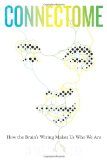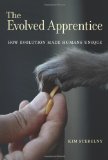new book – ‘Face Perception’
February 11, 2012
Face Perception by Vicki Bruce and Andy Young (Psychology Press, 2012)
Book description from the publisher:
Human faces are unique biological structures that convey a complex variety of important social messages. Even strangers can tell things from our faces – our feelings, our locus of attention, something of what we are saying, our age, sex and ethnic group, whether they find us attractive. In recent years there has been genuine progress in understanding how our brains derive all these different messages from faces and what can happen when one or other of the structures involved is damaged.
Face Perception provides an up-to-date, integrative summary by two authors who have helped develop and shape the field over the past 30 years. It encompasses topics as diverse as the visual information our brains can exploit when we look at faces, whether prejudicial attitudes can affect how we see faces, and how people with neurodevelopmental disorders see faces. The material is digested and summarised in a way that is accessible to students, within a structure that focuses on the different things we can do with faces. It offers a compelling synthesis of behavioural, neuropsychological and cognitive neuroscience approaches to develop a distinctive point of view of the area.
The book concludes by reviewing what is known about the development of face processing and re-examines the question of what makes faces ‘special’. Written in a clear and accessible style, this is invaluable reading for all students and researchers interested in studying face perception and social cognition.







